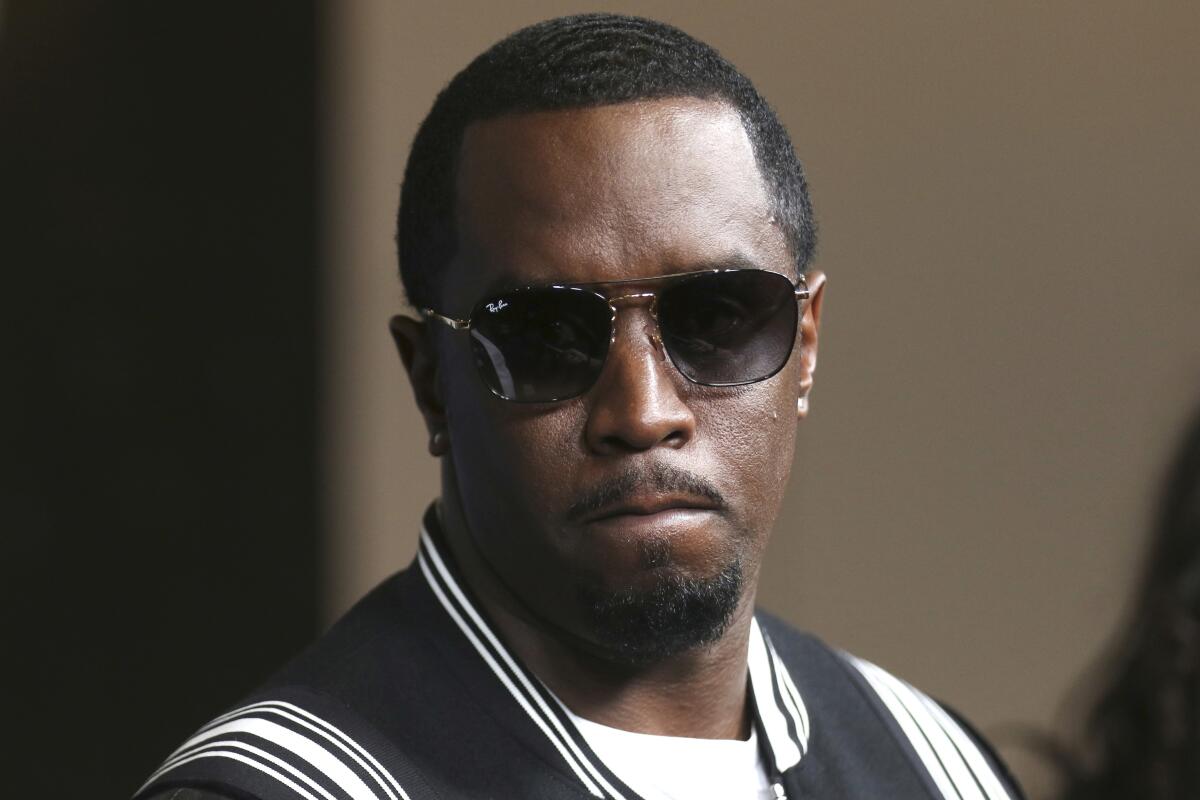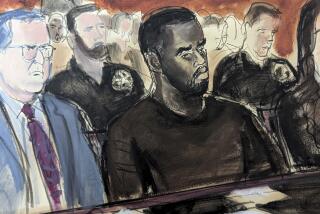With considerable hoopla, federal prosecutors last year unveiled accusations against Sean Diddy Combs.
They claimed that this was more than just an example of a famous person acting inappropriately. It was about a criminal operation that had been hiding the wrongdoings of a fashion and music entrepreneur for years.
Prosecution of a music legend for alleged violence, threats, and payoffs was a daring move that used a tactic usually reserved for organized crime cases.
However, the Manhattan jury that heard the case ultimately rejected it.
Following two days of deliberations, the jury found Combs guilty of only two counts of transportation for prostitution involving commercial sex workers, Cassie Ventura, his ex-girlfriend, and another woman who testified as Jane.
The most serious charges Combs was found not guilty of by jurors were racketeering, which carried a life sentence, and sex trafficking by force, fraud, or compulsion.
For Combs, this is a victory. If found guilty of the [racketeering] allegations, he might have spent the rest of his life behind bars. According to David Ring, a lawyer who represents victims of sexual abuse in some of the most well-known instances, he probably spends a few years behind bars before going back to running his business empire. Sean Combs largely prevailed in court, but his heinous wrongdoing, which was exposed throughout the trial, cost him dearly in the court of public opinion.
California
Prosecutors gave weeks of gruesome, breathtaking testimony in order to get Combs’ case to the jury. Was it sufficient?
A complex case
Startling accounts of Combs’ mistreatment of women characterized the trial. Legal experts, however, disagreed about whether the detailed testimony demonstrated racketeering.
Regardless of whether the actions were morally right or wrong, this jury found that the government had failed to show all of the elements of the major criminal counts they filed against Mr. Combs, according to former federal prosecutor Jeff Chemerinsky.
Combs and his collaborators allegedly enticed female victims under the guise of a romantic relationship, according to the federal indictment. Then, while he occasionally observed at events he called “freak-offs,” Combs allegedly used compulsion, threats of coercion, assault, and controlled narcotics to get women to have sex with male prostitutes. Prosecutors claimed that Combs used ketamine, ecstasy, and GHB to keep the women submissive and cooperative throughout the performances.
In addition to using his employees to engage in sex trafficking, forced labor, interstate transportation for prostitution, coercion and enticement to engage in prostitution, drug offenses, kidnapping, arson, bribery, and obstruction of justice, Combs’ criminal enterprise allegedly threatened and mistreated women. Prosecutors used a group of company workers, security personnel, and advisers to assist Combs in planning the freak-offs and then covering them up, they said jurors in their opening statements to buttress their racketeering case.
Overreach by government?
The government went too far. In order to take Combs’ assets under RICO forfeiture rules, they sought a RICO conviction. That will not occur at this time. In reference to the Racketeer Influenced and Corrupt Organizations Act, Ring stated, “This is a loss for the prosecution.”
The prosecution made a lackluster presentation. Neama Rahmani, a former federal prosecutor, stated in an interview prior to the verdict that they made several strategic and unforced mistakes.
This was the most costly prostitution trial in American history, Rahmani continued after the verdict. What a crushing defeat for the prosecution and a major victory for the defense.
According to some experts, RICO cases are intentionally challenging to prosecute.
Mitchell Epner, a former assistant U.S. attorney in New Jersey who handled multiple cases involving sex trafficking and involuntary servitude, stated that RICO is a highly strict and challenging legislation to comply with. It necessitates a continuous criminal organization and continuity of its members. Prosecutors intentionally make it hard to establish, and the defense did a great job of highlighting the technical flaws in a RICO prosecution.
Nation & World
Sean Diddy Combs’ Bad Boy Entertainment was a show business juggernaut at its peak, combining fashion, style, music, video, and liquor to create a company that made Combs a billionaire. Was it a criminal operation, indeed?
Defense vs feds
Attorneys for Combs pressed the claim that prosecutors had overcharged their client.
According to Marc Agnifilo, Combs was addicted to narcotics and led a swinger lifestyle. Although he acknowledged that Combs had engaged in domestic abuse, he said the allegations of sex trafficking and racketeering were overruled.
He said that he is not a racketeer.
The jury was informed by prosecutors that the evidence was unambiguous.
According to AP, Assistant U.S. Atty. Christy Slavik told jurors in her closing argument that racketeering law applies when someone commits crimes in a group. In the Combs case, the defendant was a powerful man, but his inner circle and business ventures made him more dangerous and powerful.
She claimed that Combs utilized a tiny army of workers to damage women and hide it, and that he relied on shame and quiet to allow and extend his abuse.
California
Combs and his collaborators are accused in a federal indictment of luring female victims, frequently by posing as love partners.
Murder, bribery, and extortion are among the 35 specific offenses covered by RICO. Federal prosecutors must demonstrate a pattern of at least two overt acts as part of a criminal enterprise.
The defense questioned why the defendants on the stand, in some circumstances, continued to be in Combs’ orbit and failed to report the behavior to authorities at the time.
Smoking gun?
For six weeks, 34 witnesses gave gruesome and explicit testimony to the jury.
During cross-examination, the defense used forceful tactics to question witnesses about why they either chose to ignore Combs or failed to report him at the time. Following the purported attacks, they also displayed text messages of love and support. The money and other items they received from Combs were also emphasized by the defense.
This is not a criminal case. Money is at issue here. According to the AP, Agnifilo stated that it’s all about the money.
They emphasized that it was difficult to demonstrate that Combs’ activities amounted to a criminal conspiracy because witnesses did not think they were committing a crime.
In a 2016 video, Combs was seen kicking and striking Ventura while she cowered and attempted self-defense in front of a bank of elevators at a hotel in Los Angeles. Then he pulls her toward their hotel room down the hallway while holding her hooded hoodie.
According to Eddie Garcia’s testimony, Combs handed him a brown paper bag filled with $100,000 in cash in exchange for the film at the InterContinental Hotel.
Garcia claimed that he met with Combs, Combs chief of staff Kristina Khorram, and a bodyguard after his boss consented to sell the video recording. He claimed that Combs called Ventura on FaceTime after Garcia expressed worries about the police, gave him the phone, and instructed Ventura to inform Garcia that she also wanted the video to disappear. Reports from inside the courtroom then state that Garcia claimed he took the money and divided it with colleagues.
According to the prosecution, this demonstrates the conspiracy.
What does this mean for other cases?
The Combs ruling, according to some experts, may discourage more sex trafficking cases.
According to Epner, the jury’s decision to exonerate Combs of the RICO and trafficking charges may make the DOJ reconsider filing comparable sex trafficking charges.
Lauren Hersh, the national director of the activist organization World Without Exploitation and the former head of the sex trafficking unit at the Brooklyn district attorney’s office in Kings County, said the verdict is also a terrible loss for victim advocates.
According to some experts, there has been progress in increasing the general public’s awareness of how sex trafficking functions and how victims may react to it, following the successful conviction of individuals such as R. Kelly and cult leader Keith Raniere. However, Hersh stated that this decision will undoubtedly have a chilling effect on prosecutors, who will be reluctant to file comparable charges even in cases when the evidence is strong.










